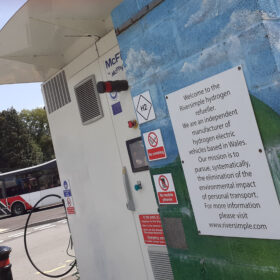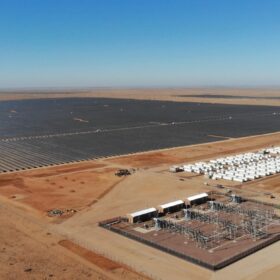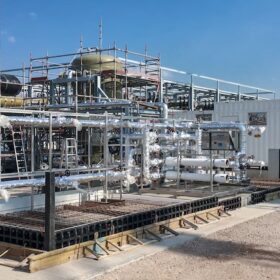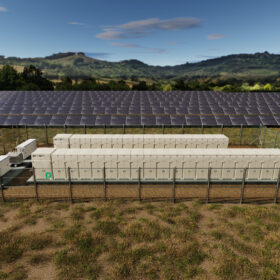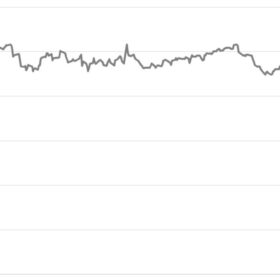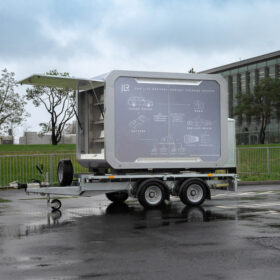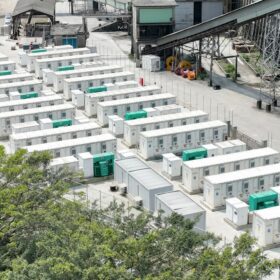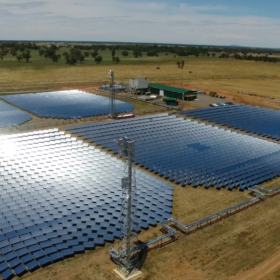When nano- meets climate technology
The use of metal-organic frameworks (MOFs) to create nanoscale crystal structures to attract hydrogen molecules could drastically improve the energy efficiency of storing and transporting the energy carrier.
Large-scale solar, battery storage hybrid starts operations in South Africa
Norwegian PV developer Scatec ASA has switched on a hybrid solar and battery storage facility in the Northern Cape province of South Africa.
The Hydrogen Stream: Linde plans 5 MW electrolyzer in Brazil
Linde says its White Martins unit will build a second electrolyzer to produce green hydrogen in Brazil, while Sunfire has launched a front-end engineering and design study (FEED) for a new 500 MW hydrogen project.
Europe’s largest battery storage project secures approval
Netherlands-based developer Giga Storage has obtained the irrevocable permit for the construction of a 600 MW/2,400 MWh battery energy storage system (BESS) project in Belgium.
Netherlands allocates €100 million for battery storage subsidies
The Dutch government has earmarked €100 million ($106.7 million) of subsidies for the deployment of battery storage alongside PV projects. The funds are part of a €416 million subsidy program announced last year to alleviate grid congestion.
Europe’s negative price trend could continue until summer
AleaSoft and SolarPower Europe inform pv magazine that negative energy prices in Europe are related to the pandemic, low demand, insufficient storage solutions, and inadequate energy planning. They say this situation will likely continue into the summer.
ArcActive targets Australia with ‘re-engineered’ lead-acid battery tech
ArcActive, a New Zealand-based battery tech specialist, plans to set up a factory in Australia within 18 months. It says the facility will be able to produce 30,000 lead acid-based residential energy storage systems per year.
JLR, Allye Energy partner on 270 kWh portable battery energy storage system
Jaguar Land Rover (JLR) and Allye Energy have agreed to collaborate on a 270 kWh portable battery energy storage system (BESS) built with second-life Range Rover batteries. The system, which is set to become the first commercially available BESS with JLR battery packs, can fully charge up to nine Range Rover PHEV vehicles at once.
Nhoa Energy commissions battery storage project in Taiwan
Nhoa Energy, an Italian developer, has commissioned a battery energy storage project for Taiwan Cement Group in Yilan county, Taiwan, with a capacity exceeding 120 MWh.
Vast Solar to build 30 MW/288 MWh CSP plant in Australia
Renewables developer Vast Solar has signed a key engineering contract as it pushes toward construction of a 30 MW/288 MWh thermal concentrated solar power (CSP) plant with more than eight hours of energy storage capacity near Port Augusta, South Australia.
